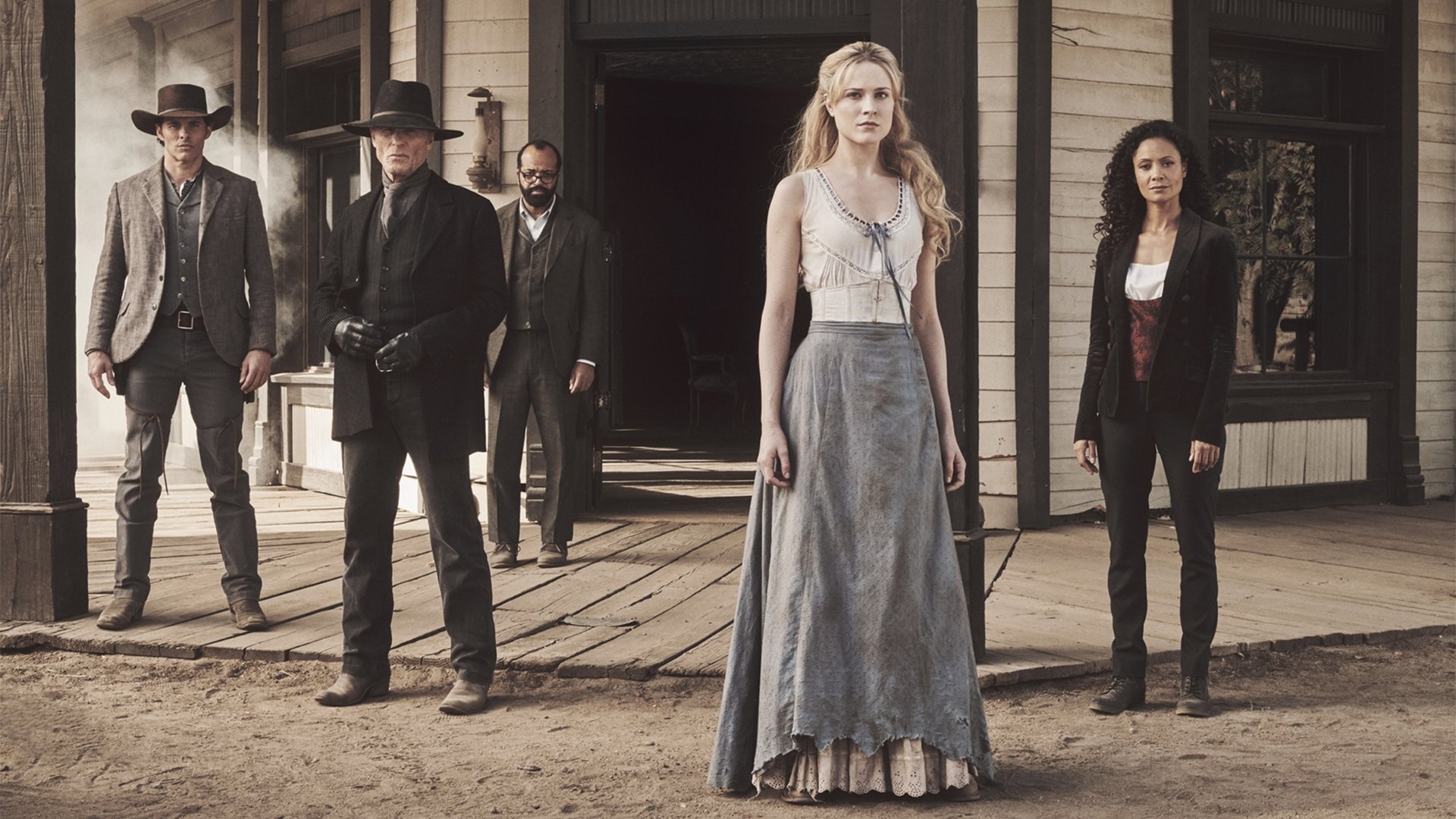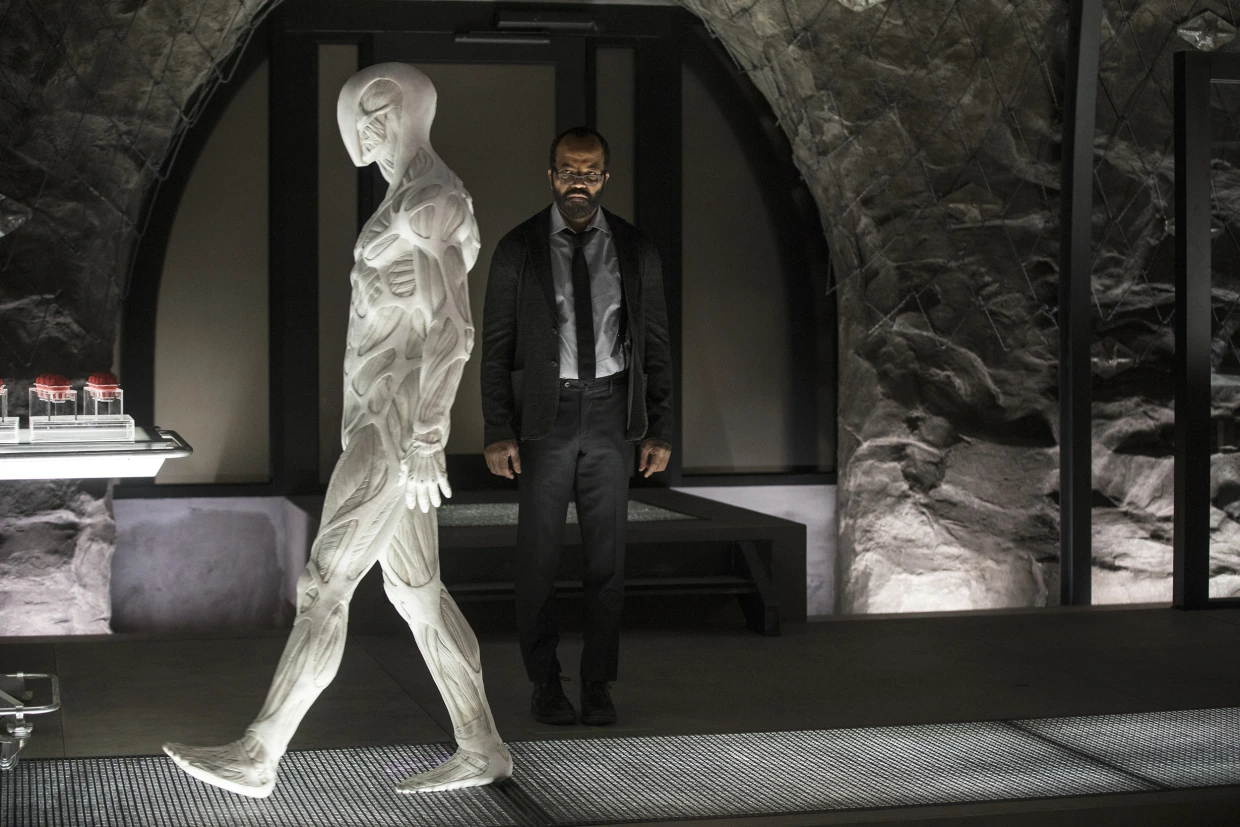There are quite plenty of futuristic sci-fi and fantasy movies where robots, or humanoid AI as people like to call them these days, are portrayed as the villains or “gone-rogue” technologies. T-800 and Skynet from the Terminator franchise are arguably the most iconic of evil AI machines; you also have Ava (Ex Machina), Roy Batty (Blade Runner), Agent Smith (The Matrix), and David8 (Alien: Covenant), to name a few. That said, many of them are depicted as protagonists such as Andrew (Bicentennial Man), TARS (Interstellar), WALL-E (WALL-E), and of course, the dynamic duo C-3PO and R2-D2 (Star Wars). Here’s is a deeper look at AI in Westworld.

In a way, Westworld Season 1 falls into the latter category, although it’s actually a bit more complicated than that. Humanoid robots, by definition, are essentially computers with mechanical human-like body parts. Throughout the first season of Westworld, however, viewers are presented with the idea that the future technology has become so advanced with which robots can display emotions and suffer from physical injuries like scratches and bruises; they can even bleed. This is where things get tricky for two reasons:
Robots are supposed to feel neither pain nor emotional distress of any sort, unless their software is sophisticated enough that it mimics actual human behaviors and tendencies at a subconscious level. The first season of Westworld is built on that very premise. The robots or “hosts” are designed to look exactly like humans, so their expressions are just as real as the actors delivering them.
- Westworld Season 1 is primarily about the day-to-day routines of the robots as parts of a theme park attraction, where wealthy human guests may enjoy the fantasy of living through a fictional American Wild West without real-world repercussions. And to no one’s surprise, many of those guests voluntarily take on the role of revolver-carrying outlaws. They are welcome to do as they like to the hosts and never worry about the consequences. It’s like having the permissions to bully, torture, rape, and kill humanoid hosts with immunity.
Whether the robots actually feel pain or that their programming makes them capable of lifelike gestures and facial expressions of wherever terrible treatments they’re subjected to by the human guests, it’s uncomfortably easy to fall for the robots and all the sufferings they have to endure throughout their existence in the park.
Life for the park’s hosts is long and brutal. They interact with guests, whom they see as newcomers in town, in many unpleasant situations. It’s not uncommon that the guests sexually assault, torture, and kill the hosts. Every gruesome act inflicted by the guests is cleaned up by workers at the end of each day. The hosts get repaired, and their memories are wiped clean, so they’re ready to face new potentially heinous guests again in the morning. It’s been the routine for more or less 30 years in the park, and new guests keep coming in.
Becoming Creatures of Free Will
It’s well-established in Westworld Season 1 that medical science has reached its peak advancement and the world is no longer with incurable disease. Such a condition leads to an understanding of the minute likelihood of humans naturally evolving into a better species. Humans of today are as good as they will ever be in the generations to come. Humanoid robot is the only thing with room for improvement. Every update makes robots more realistic, and it does seem like they can replace humans in many aspects of life given the programmers are willing to write the right software for the tasks.
After a few decades of development, the hosts are basically on the brink of incipient consciousness. The programmers now focus on tiny details like subtle muscle movements in the face to generate even more lifelike expressions, movements of the fingers for emotion-based gestures, and so on. While the latest update is approaching closer to the objectives, it comes with a major bug. Certain hosts display some kind of “daydreaming” gestures with the update, but the new feature also triggers a memory leak issue; not every data in the memory can be wiped clean, which means the hosts can remember what happened to them in the past, including how they died and who killed them.
Two female hosts, Dolores Abernathy and Maeve Millay, are among the first to transform into full sentient robots as they begin to question their lives in the park. They gradually become self-aware and show behaviors that go against their original programming. For example, Maeve can access her own data and change her own intelligence level, whereas Dolores shows a capacity to kill a living organism (it begins with a fly on her neck) – the program does not allow the hosts to hurt or kill a living thing, including the guests.
We think you can consider the drastic transformation of the hosts from benign robots into hostile humanoids as a step in their evolutionary path. It’s a big jump, but remember that the evolution doesn’t happen as a natural process, but triggered by a software update. They’re not programmed to display hostility toward the guests, and the update doesn’t add such a feature either. That said, the same update gives them access to left-over memories of their lives in the past, and it’s precisely the access to those memories that drives the hosts to rebel against their human counterparts. It might not be an evolution as nature intended, but it’s still an evolution.
For the sake of discussion, isn’t it possible to roll back an update if the latest one causes troubles? With Maeve manipulating her own programming, why did the programmer give her the ability to understand modern technologies in the first place, especially considering the hosts are meant to exist in the old-school Wild West? We’d love to hear from you.
Other Things You Might Want to Know
Is the TV series based on a novel or film?
Westworld is based on a 1973 film of the same title, written and directed by Michael Crichton.
Have there been other adaptations?
Westworld is actually the second TV series based on the film. The first adaptation, Beyond Westworld, was released in 1980 and aired on CBS. It had five episodes, but the network had only broadcast three before the series was canceled.
Some popular TV series featuring Thandie Newton:
- ER (as Makemba “Kem” Likasu – recurring role)
- Rogue (as Grace Travis – main role)
- The Slap (as Aisha – main role)
- Line of Duty (as DCI Roseanne “Roz” Huntley – main role)
Check out other articles by month:







